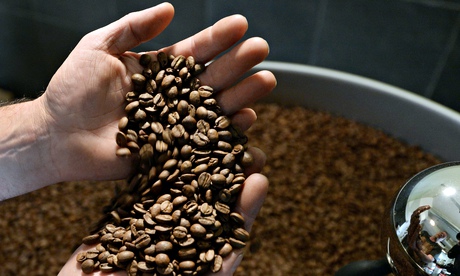
Guilt-free shopping will not solve the world’s problems. It’s time for more shame.
Guilt may be an understandable response to environmental destruction, poor labour standards, animal cruelty or carbon emissions from budget holiday flights. “It’s up to me to change,” we’ve been encouraged to think. I can vividly remember the first time I felt this kind guilt: I was nine years old and saw a haunting black-and-white photo of a dead dolphin that had been hoisted on to a tuna boat. Fishing for tuna was killing dolphins, which would get caught in the nets and drown. I ate tuna, so apparently I, too, was to blame.
I insisted that my family boycott tuna, and we weren’t alone. After a large-scale boycott, tuna certified as “dolphin-safe” or “dolphin-friendly” was introduced and we started buying tuna again. My guilt was assuaged and I didn’t think about it again for more than a decade. When I revisited it as a graduate researching overfishing, I realised the problem was more complicated.
I could see that the tuna boycott had been powerful, but the dolphin-safe logo of 1990, which eased my conscience, arose during the anti-regulatory Reagan-Thatcher era, which underlined the importance of individual consumer choice, rather than government oversight over large‑scale producers. If demand changed, the argument went, supply would respond.
Those who felt concerned about the state of the planet, or guilty about sweatshops overseas or factory farming, were reminded that they are not innocent bystanders: they were part of the problem as a result of their own patterns of consumption. This was, of course, true.
We were encouraged to engage with our guilt primarily as consumers; with ethical shopping, or taking fewer flights, we could feel better and be part of the solution through the power of our pockets. The rise of dolphin-safe, cage-free, organic, fair-trade, shade-grown, sustainable, cruelty-free, carbon-neutral products suggested that responsibility for a wide array of problems was in the hands of individuals, rather than being something that society, or the political system, needed to address.
But here is the thing: most consumers continue to buy the same old stuff. Only the portion of the industry that wants to cater to consumers with consciences has changed; the rest of the industry continues to use pesticides, or unfair trade, or destructive fishing gear – and can sell those products at lower prices to people who don’t feel bad about buying them. This is how entire industries shirk reform, while niche products ease the consciences of the few.
Collective problems such as the use of pesticides and worker exploitation cannot be solved through individual choice. If I buy organic foods, but pesticides are in everybody else’s food, those pesticides will still leach into our shared water supply. If I stop flying and everyone else continues, carbon emissions continue to increase. Although guilt is an appropriate response to social and environmental problems, the way we have addressed our guilt is not. As individuals, we of course have more power than just our purchasing power.
The same guilt that might mobilise a minority to activism has been co-opted and used as a marketing tool to distract that same minority with easy acts of consumption. Over the past quarter-century, the movements to encourage better environmental protection, labour standards and animal welfare have all, to varying degrees, used guilt and guilt-alleviation products that engage people primarily as consumers rather than as citizens. Guilt tactics have eclipsed the older strategy, shame.
It is tempting to think about shame as something western societies have outgrown. Shaming punishments expose a transgressor to public disapproval – dunce caps, whipping poles, or hot-iron branding come uncomfortably to mind. Most western countries have abolished such punishments, especially shaming by the state.
A quick word on the differences between guilt and shame. Psychologists suggest that guilt is largely a western phenomenon (many eastern cultures do not even have a word for it). Compared to shame, it is also more recent (Shakespeare used the word “guilt” only 33 times, while he used “shame” 344 times). Guilt is a form of self-punishment that requires a conscience and makes you feel bad if you transgress your own standards. Because guilt requires a conscience, its use is limited to individuals, since groups, such as the tuna-fishing industry, lack a conscience and therefore cannot feel guilty. I believe we need shame now more than ever, and that we need to get shame to serve us in new, larger ways.
Shaming, unlike guilt, can be used to influence the way groups – even entire industries – behave. Shame can also be used by the weak against the strong. Environmental groups traced the responsibility for mountaintop removal in Appalachia to nine banks that financed the coal companies involved, and singled them out year after year (by 2014, the fifth year of the campaign, both Wells Fargo and JPMorgan Chase have pledged to end their financial relationship with mountain-top-removing coal companies).
Shaming can also be used against entire countries. Human rights groups persuaded the US government to stop executing juvenile offenders by pointing out that only seven countries apart from America (Bangladesh, Iran, Iraq, Nigeria, Pakistan, Saudi Arabia and Yemen) had executed juveniles since 1990. In 2005, the US Supreme Court outlawed juvenile executions.
Shaming makes a difference, but it’s more difficult to make a profit employing shame than it is with guilt. There are no financial returns from singling out bad products, bad banks or the worst air polluters. In contrast, products or industries marketed as “guilt-free” can be sold at higher prices. It’s time to realise, however, that although guilt-free shopping might be a morally correct thing to do, it’s not making enough of a difference. It doesn’t lead to large-scale reform. We need more shaming.
Jennifer Jacquet’s Is Shame Necessary? is published by Allen Lane.

